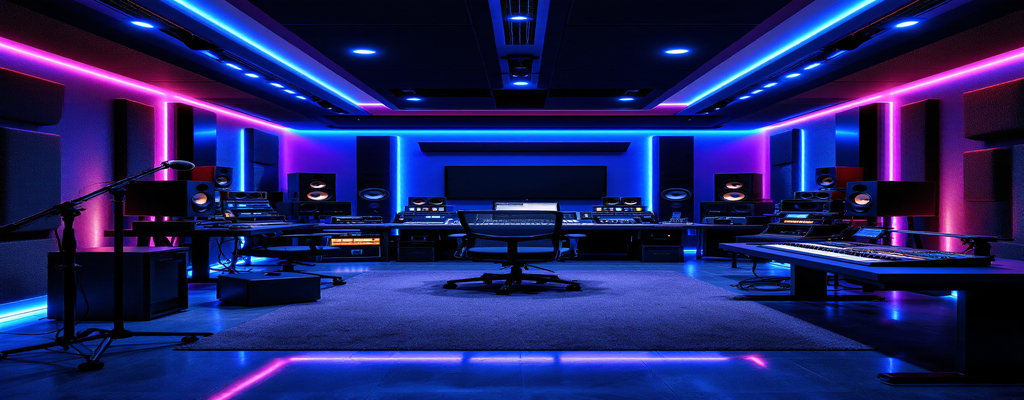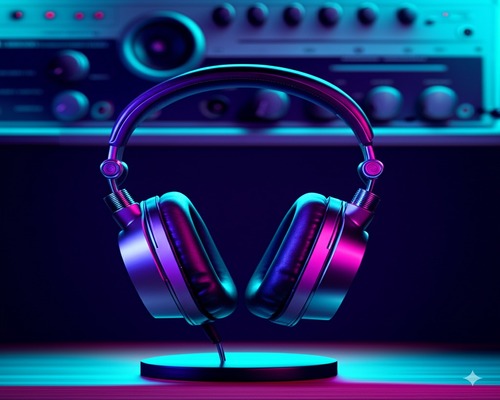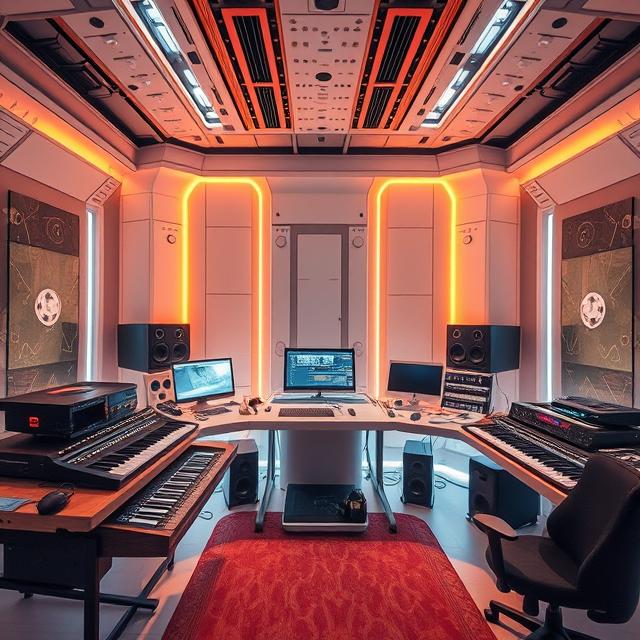
The AI in music industry is changing how music gets made, sold, and heard. From computer-made songs to virtual artists with their own record deals, AI tools are now part of every part of making music. This article looks at what’s happening right now with AI in music, the good things, the problems, and what might happen next.
Introduction to AI Music Technology and Industry Impact
AI in music industry technology is changing how people create, share, and listen to music. These computer systems learn from millions of songs to make new music on their own. From small artists working alone to big record companies, everyone in music is feeling the effects.
The music business is changing fast as AI tools get better and easier to use. These changes are creating new chances for some people and big challenges for others in the industry.
AI-Generated Music Creation: Tools and Techniques
AI tools for making music use special computer systems that learn from existing songs to create brand new tracks in different styles. These tools can now make professional-quality music by studying patterns from millions of songs.
These AI music creation tools keep getting better. Some just make simple melodies while others can create complete songs with all the instruments and arrangements.
For artists who want to try different AI approaches in their music, there are now many options for creating music in various genres using AI.
According to Forbes, “AI music generators are getting more advanced, with some able to produce entire compositions from simple text prompts.” These tools let people with no music training create songs that sound professional.
The impact of live AI music performances is also growing, with AI systems that can adjust and respond to musicians in real time during concerts.
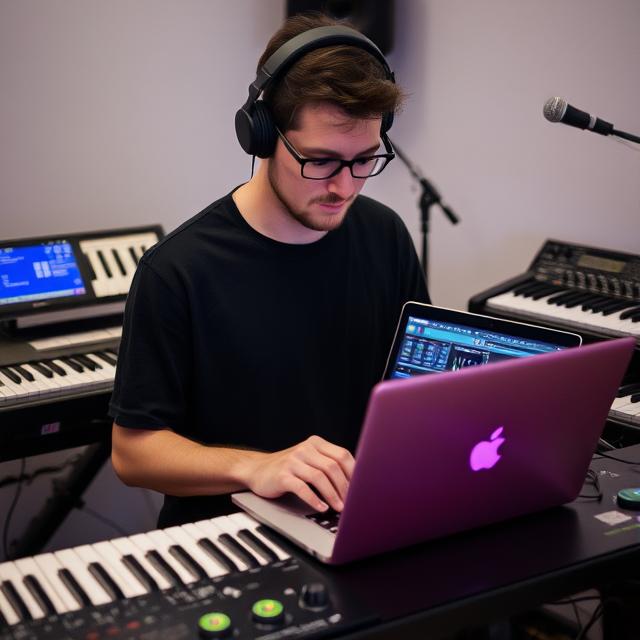
AI Music Labels: The Rise of Virtual Artists and AI Record Companies
AI music labels are new players in the music business that only work with computer-generated artists. These fake artists have detailed profiles, life stories, and professional music—all created by AI.
Companies like All Music Works show how AI music labels can work much cheaper and faster than regular record companies. They don’t need to pay for studio time or deal with human artists’ schedules or demands.
According to Movee.ai, All Music Works is “the first record label to exclusively represent AI-generated artists with complete digital identities.” This business model cuts costs dramatically while still producing music that people want to hear.
For those interested in how AI is changing music production specifically, check out our guide on AI music production techniques for 2025.
AI Music Streaming: Personalization and Recommendation Systems
AI music streaming services use smart computer systems to study what you like and give you a personal listening experience. These systems track what songs you play, how long you listen, and which tracks you skip to build a picture of what music you enjoy.
The way AI music technology changes streaming has completely changed how fans find new music and how artists reach new listeners. When you use services that learn your taste, you’re more likely to discover artists you’ve never heard before but will probably like.
“Streaming platforms now use AI music industry algorithms to analyze not just what you’ve played before, but also the acoustic features of songs to find similar music you might enjoy.” This level of personalized AI music recommendation systems goes far beyond the simple genre-based suggestions of the past.
Those interested in specific genres might want to explore our guides on AI in electronic dance music or AI in pop music.
AI Music Copyright Challenges: Legal Implications and Ownership
AI music copyright issues raise tough legal questions about who owns computer-made songs, who should get paid, and what counts as copying in the digital age. When AI systems learn by studying copyrighted songs, it’s not clear if the new music they make is truly original or if it’s stealing from those original artists.
The AI music industry is still figuring out the right legal rules for computer-generated content. Some important questions include: Can you copyright a song made by AI? Who owns it—the person who used the AI, the company that made the AI, or nobody?
As Clifford Chance points out, “Current copyright frameworks were not designed with AI-generated music in mind, creating a gray area where traditional concepts of authorship and originality are challenged.” Some experts are suggesting blockchain solutions for AI music copyright protection that could create clear records of who contributed what to each song.
For musicians looking to navigate these complex issues, our article on AI tools for musicians provides practical guidance.
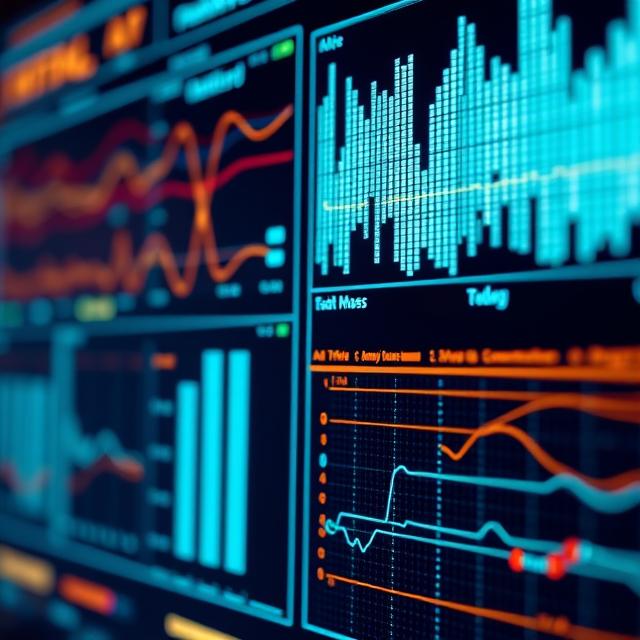
AI-Enhanced Live Music Performances: Immersive Concert Experiences
AI-enhanced performances use real-time computer analysis to create dynamic light shows, adjust sound mixing on the fly, and add interactive elements to concerts. These systems respond to the music’s beat, mood, and energy to create a complete experience that matches what you’re hearing.
More and more artists are using AI music technology in their shows to create unique concert experiences that wouldn’t be possible with traditional methods. For example, some performers use AI to create visual backdrops that react to their playing in real time.
Adam Walsworth notes that “AI music creation tools are now being integrated into live performances, allowing for spontaneous composition and collaboration between human musicians and artificial intelligence.” This creates concerts where each show is truly one-of-a-kind.
Those interested in how AI is transforming different genres might enjoy our exploration of AI in hip hop and rap or AI in classical and orchestral music.
AI Fan Engagement: Customizable Music Experiences
AI fan engagement tools create personal connections between artists and listeners through customized content. These systems analyze what individual fans like to deliver special content, recommendations, and ways to interact that match their preferences.
Musicians now use AI to build stronger relationships with fans through personalized experiences that keep people coming back. This AI music industry approach helps artists stand out in a crowded market.
According to Music Industry Weekly, “Artists are using AI music streaming data to create segmented fan experiences, from customized merchandise recommendations to personalized concert setlists based on local streaming preferences.” This level of customization was impossible before AI.
For fans of more experimental sounds, our guide to AI in ambient and experimental music shows how AI is pushing musical boundaries.
AI Music Economics: Industry Revenue Shifts and New Business Models
AI music economics is changing traditional money flows and creating new business chances within the industry. The low cost of AI-generated music has big effects on production budgets, payment structures, and how much artists get paid.
The financial side of music keeps evolving as AI music technology makes new ways to make money possible and challenges old economic models. For example, some platforms now offer subscription services where users can generate unlimited custom tracks for commercial use—something that would have required hiring composers in the past.
The AI music industry is seeing shifts in who makes money and how. Traditional middlemen like producers and studio owners may find their services less in demand as digital music creation becomes more automated and accessible.
For those looking to stay ahead in this changing landscape, our category on AI music production offers valuable insights and techniques.
AI Vocal Synthesis: Voice Cloning and Ethical Considerations
AI music technology can now copy any singer’s voice with results that sound amazingly real. This ability raises serious ethical questions about permission, protecting people’s identities, and potential misuse.
The “Ghostwriter” incident with fake Drake and The Weeknd vocals showed the challenges in regulating voice copying technology. These AI voice cloning ethical implications in music industry extend beyond just legal concerns—they touch on fundamental questions about artistic identity.
Clifford Chance notes that “Voice is perhaps the most personal aspect of an artist’s identity, and current laws may not adequately protect against unauthorized synthetic recreations.” This creates a situation where an artist’s most personal asset—their voice—could be used without their knowledge or consent.
Those interested in the technical side of this technology might enjoy our detailed look at AI stem separation tools that can isolate vocals from existing recordings.
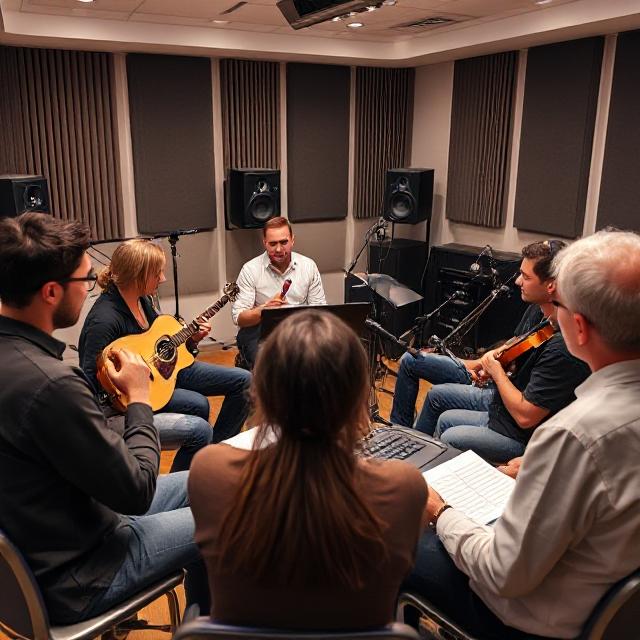
AI Music Therapy Personalization
A groundbreaking application of AI music creation tools is creating adaptive therapeutic compositions based on biological feedback. Unlike companies focused only on entertainment, this approach combines medical science with AI-generated music to create sounds that respond to your body’s signals.
This innovative use of machine learning music stands out by focusing on healthcare applications, creating music that can help with stress, brain function, and emotional balance through personalized sound therapy. The AI analyzes factors like heart rate, brain activity, and even facial expressions to generate music that promotes specific emotional states.
For those interested in how AI is changing the overall landscape, our comprehensive overview of the impact of AI in music explores these therapeutic applications and many others.
Blockchain-Secured AI Music Attribution
Blockchain-secured attribution offers a revolutionary solution to AI music copyright challenges by creating permanent records of who contributed what to a song. This system tracks everything that goes into AI-generated music, including original samples, human guidance, and computer contributions.
This approach solves the attribution problem in the AI music industry while creating new opportunities for micro-payments and shared ownership models that other systems haven’t explored. Through neural network composition tracked on blockchain, every contributor—human or AI—can receive proper credit and compensation.
For those looking to explore different creative techniques, our collection of AI music prompts can help spark new ideas within this secure attribution framework.
The Future of Independent Artists in the AI Music Era
As AI music technology becomes more sophisticated, many wonder about the future of independent artists in AI music era. While some fear that automated music production might replace human creativity, others see AI as a tool that can help independent artists compete with major labels.
Independent artists now use AI music creation tools to handle tasks that once required expensive producers or session musicians. This democratization of production tools means that someone with a good idea can create professional-sounding music without a big budget.
The most forward-thinking artists are combining human creativity with AI music technology to create unique sounds that wouldn’t be possible with either approach alone. By using AI as a collaborator rather than a replacement, they’re defining new artistic possibilities.
For artists looking to master these new tools, our AI music learning resources provide practical guidance on getting started with AI music creation.
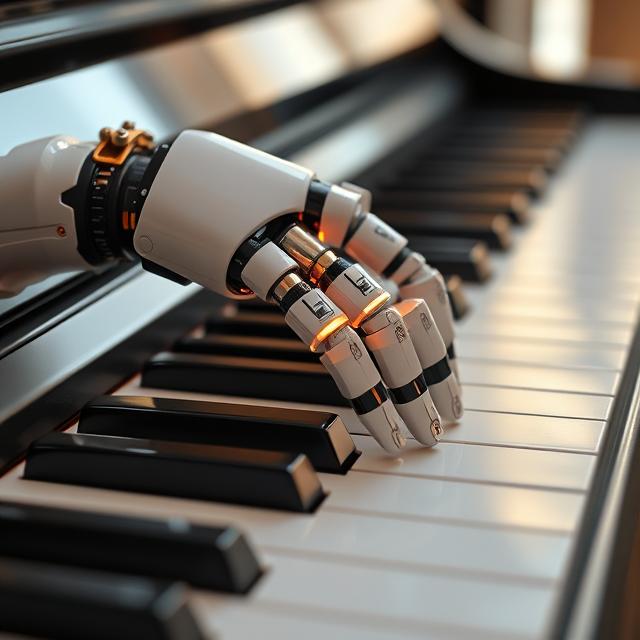
Conclusion
The AI music industry is flipping the script on how music gets made and sold. From how AI creates original music compositions to the messy questions about who owns what and when something crosses the line, these tech tools are changing the game—whether we like it or not.
Looking ahead, the winners will be folks who can blend the human touch with robot smarts. The AI music industry isn’t about kicking musicians to the curb—it’s about giving them crazy new tools that blow the doors off what we thought was possible.
Whether you’re a bedroom producer, music biz hustler, or just someone who digs a good playlist, getting how this all works helps you ride the wave instead of getting crushed by it. Want to keep up? Our guides on AI music mastering and AI mixing tools show you how to squeeze the juice out of these new toys.
Sources
-
https://www.movee.ai/blog/all-music-works-the-first-record-label-exclusively-featuring-ai-artists
- https://www.cliffordchance.com/insights/resources/blogs/talking-tech/en/articles/2023/04/ai-generated-music-and-copyright.html
-
https://musicindustryweekly.com/rise-of-customizable-fan-experiences-with-ai/
